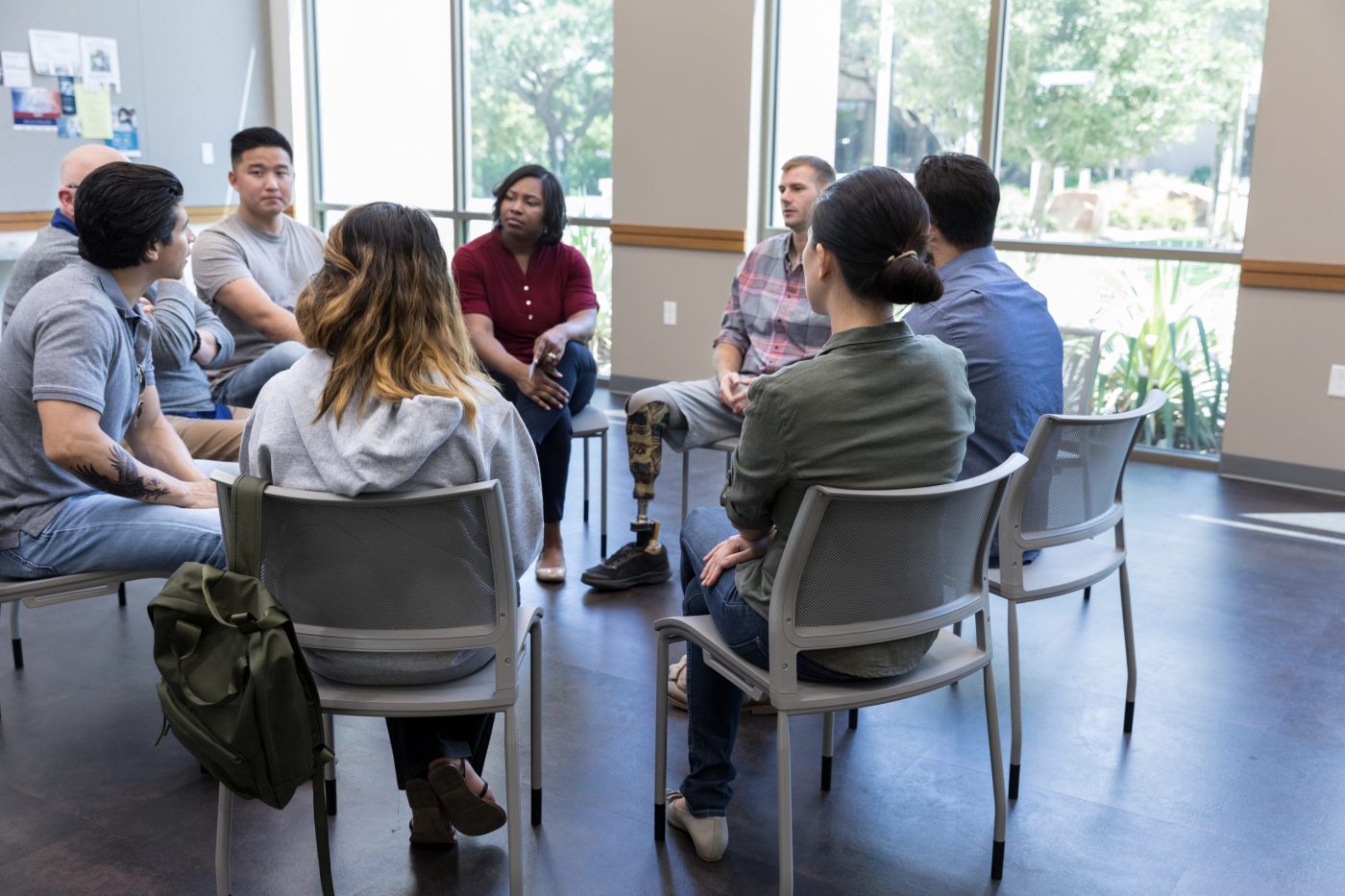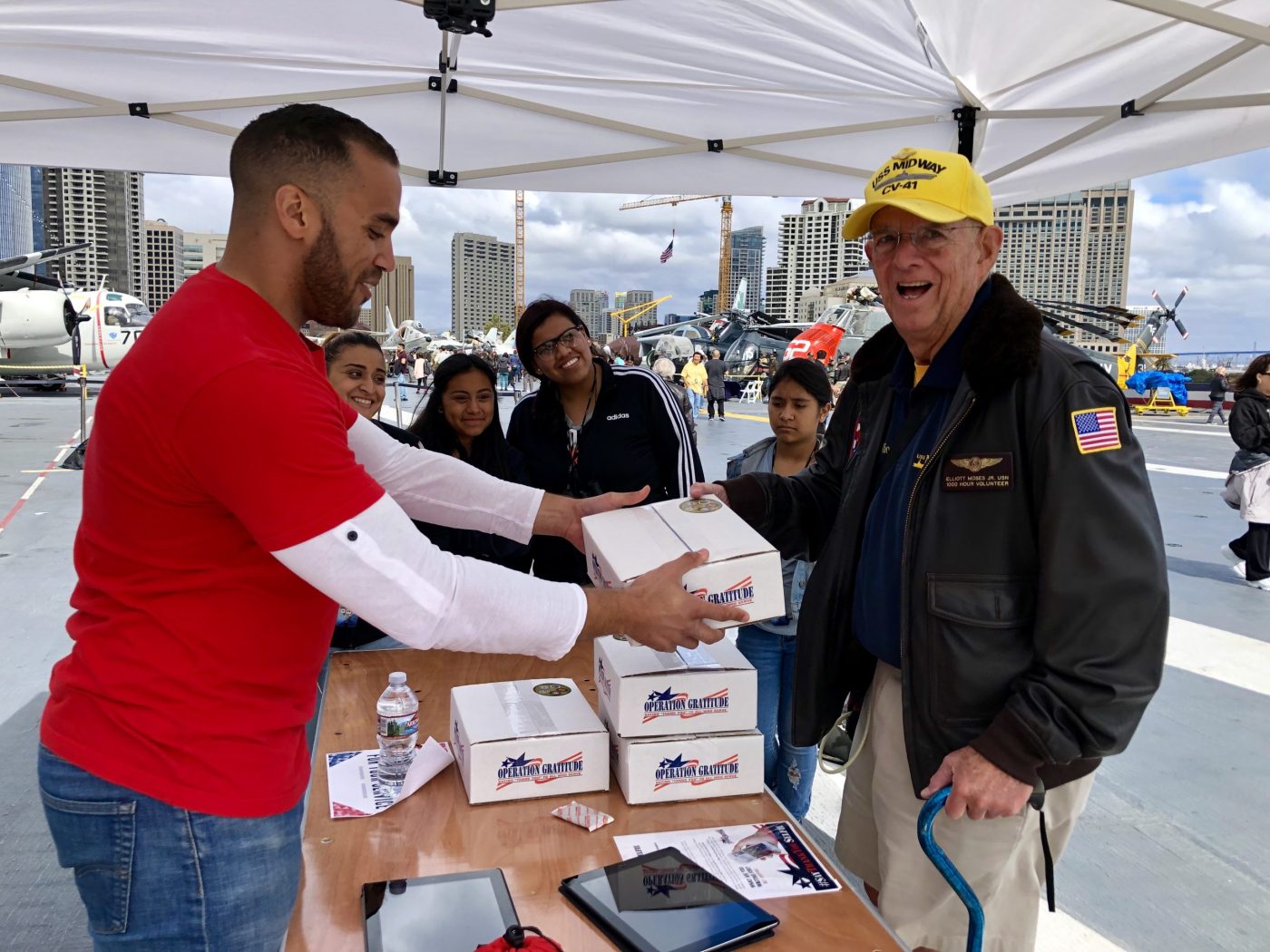VA’s National Advance Care Planning via Group Visits Program engages Veterans, caregivers and those they trust in facilitated group conversations about the kind of care that’s right for each of them. It also covers the steps you can take to have your wishes heard and respected when the need arises. The words “advance care planning” can mean different things depending upon who you ask. It’s a process of identifying your values and preferences for future health care if you are unable to make health care decisions.
Any time a person is unable to communicate for themselves, advance care planning can assist caregivers and health care providers in decision-making. Unexpected life events can happen in an instant. Advance care planning can empower individuals in gaining a sense of control over their health care.
Participants connect through sharing their experiences and stories in small group settings. A trained facilitator meets with participants who are encouraged to consider what matters most to them. Groups are offered in person and virtually.
Veterans and caregivers are welcome to attend a group session regardless of age or health status. Participants are invited to bring a person they trust with them. Knowledge of advance care planning is not necessary for participation.
The conversation includes questions such as:
- Have you thought about what you would want if you were hurt, injured or sick and could not communicate?
- Have you named someone to make health care decisions for you?
- Have you discussed these topics with someone on your health care team?
Feedback from group participants:
- “My VA providers have asked me about completing an advance directive so many times they have even given me copies of the form! It never made sense to me until I attended an ACP-GV group.” – Veteran, Nashville, TN
- “I had the chance to attend a group for myself with other caregivers in the Caregiver Support Program. The discussion with other caregivers helped me realize that I had been neglecting my own health care planning! I set a goal for myself during the group and followed through.” – Caregiver, Houston
Those interested in attending a group visit may reach out to their local VA Healthcare System Site Lead.
Resources
- Learn more at VHA Social Work
- Check out The Conversation Project for non-Veteran, state specific resources
- See this additional information on VA Geriatrics and Extended Care
- Learn how to implement this program at the VA Diffusion Marketplace
- Contact us by email: National ACP-GV Program
Topics in this story
More Stories
Make a pledge to volunteer during VetServe 2025 and the national day of service on April 23.
The slopes of the Winter Sports Clinic help Veterans with disabilities remember that pushing boundaries—and not their limitations—is what defines them.
One unbreakable bond shows that "even little things can change people’s lives.”






I do not know what the answers are because I am to busy to even figure out the questions. I am a 100% service connected veteran and my husband my caregiver. Then he lost both his legs below the knee to diabetes. I now have to do everything and I am pretty damned upset. I have no help and I am older than he is. We have a home a about a 1/4-acre lot and all of the work now belongs to me because he sits on his tokis and does nothing to help me. The garbage is my daily job and my weekly job. Every time he soils his bed that is my job to get up and take care of the mess. Well, I am not at all happy and this is just a bunch of crap that I am stuck with everything while he sits and plays casino games all day in his room. Then I get to fix him meals and take them into him and he cannot even get his dirty dishes to the dishwasher. I have to clean up all the mess and do the laundry and he change his damned stump socks as many times a day as he has socks so that I can start washing them again. We do not have any thing set up for the future and no will or living will or trust or anything. I have no where to turn to for help and the one social worker that the VA in Reno has should be fired because she is an unsocial worker. I am just at a loss here for what we need to do and I don’t have time to run around going to classes or groups because I have all this to keep me occupied. I had a gal who was coming down from up by Alturas and would stay with my husband while I went to things I had to go to like grandchildren’s graduations and she was young enough to do this. She was 39 years old and last month on the 14th she died on her way home from here of a heart attack. There went that option.
Could you send me a blank living will that I can fill out? I don’t want to take 20 minutes to watch the video. But I will fill out a living will, get it notarized and send copies to my doctor and lawyer.
Does this apply to survivors?
VA is working hard. However there is an overwhelming ton of paper work, referrals etc. etc.
Make specific forms easy to find and use.
It is a nightmare.
Too much info. Not enough else. Disapointing.
I really appreciate this new openess from the VA. I am honored to be included in notifications about all the services. At 87 much needed.
Teach it: Vets also need Long Term Care insurance (LTCi) not only Advanced Care Planning. LTCi is an insurance policy that provides funds for custodial care for a properly enrolled beneficiary. Educate veterans about their need for LTCi! These policies are health underwritten which means the member needs to secure a policy when they are still healthy — usually in their early fifties. The VA can be a change agent to lift the appalling ignorance on this compelling issue amongst Vets. (No, Medicare is not long term care insurance: It’s medical insurance.) The time to secure fire insurance for one’s home is BEFORE ignition occurs.
I’m a 100% service connected 56 years old veteran, my parents are gone, my siblings have basically disowned me, have very few friends who “know” me good enough to help with my advance directives, even my social workers at the VA don’t know me that well. I have no one to make the right decisions for me if something happens. What can I do ?
Give us the “FORM” number (for the Advance Care Designation) so we can fill it out and present it to the proper authorities at the VA. Thanks
I an a single, 100% Permanent and Total 75 yr old disabled Veteran with Purple Heart. What happens to me if I become totally incapable of taking care of myself? How do I plan for that possible eventuality?
I am 90% disabled vet to I qualify for a walk in shower. And I am wondering with extended health care do I lose my disability payments that I get
how doI go about getting a walk in shower?
I have been looking into the walk-in tubs with showers for a few years. I joked with my provider a while back about getting the VA authorization for one. I see articles about discounts in all my Veteran’s magazines, but they never mention an actual cost. I saw one at a local business while pricing a new storm door. They asked $25,000, and I don’t remember if that was just the tub or if it included installation. It was a bit over my price range. Does the VA have any way of helping get the actual prices on those advertised in our Veteran’s magazines?
I am a disabled Veteran with arthritis, osteoarthritis, several degenerative discs, and a couple of bulging. Also, neuropathy and sciatica are among other medical conditions.
One of these tubs that include showers would be very helpful and therapeutic for me.
Hi just reading your comments just ask your VA doc to write you a prescription to get a walk in shower and he will send it to prosthetics Then prosthetics will call you to explain . And you don’t have to be 100%
They denied me, for a caregiver, I’m a permanent disable veteran, Vietnam veteran.